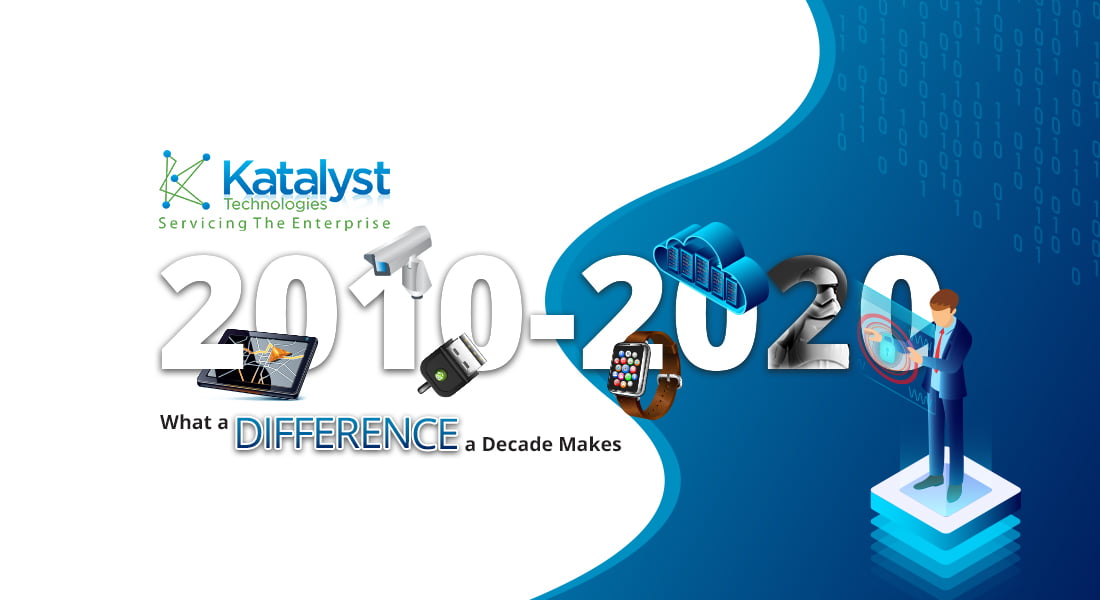
“Flight by machines heavier than air is unpractical and insignificant, if not utterly impossible.” – astronomer Simon Newcomb, 1902…one year before the Wright Brothers successfully launched the world’s first sustained flight
“The cinema is little more than a fad…what audiences really want to see is flesh and blood on the stage.” – actor Charlie Chaplin, 1914…at the start of a career that would encompass more than 80 films over five decades
“Guitar groups are on the way out.” – Decca Records executive Dick Rowe, 1962…justifying his decision not to sign the Beatles to a record contract
Not everyone can be Nostradamus, and history is filled with predictions that didn’t quite pan out, to put it mildly. No field has seen that more consistently than technology, with prognosticators doubting the viability of the lightbulb, television, and home computers. However, even though antigravity belts and intergalactic communication have yet to materialize, the past decade brought us not only new technology but innovative approaches and mentalities that have redefined the industry.
“We’ve come a long way,” says Keiland Cooper, a neuroscientist at the University of California, Irvine, and board-member of ContinualAI. “A decade ago, data science was housed in academia and a handful of companies. Now it is so well-known and useful that the White House hired a chief data scientist [in 2015].”
The thrilling/daunting/terrifying (take your pick) reality is that we’re just getting started. The only safe prediction one can make about the technology world of 2030 is that it will likely be virtually unrecognizable from where we are today.
A Decade of Development
The 2010s showcased incredible accomplishments in AI. From consumer products to a robot game show champion, it was a period that has reshaped scientists’ and the general public’s relationships with technology.
“I think that we came to the point where someone without a Ph.D. in math or statistics can easily train and use [an AI] model,” says Aleh Plashchynski, Senior Data Scientist at Formulate, pointing to modern frameworks that allow users to train and test deep learning models without having to write code at all. “This was a dream in 2010.”
“Deep learning, arguably the most well-known and state-of-the-art AI technique, [reemerged] about a decade ago,” says Cooper. “Almost overnight, the accuracy of Google Translate suddenly increased, due to the subtle switch from rule–based natural language techniques to deep learning ones…while AI research had been ongoing, it was examples like these, coupled with the expansive datasets, that raised AI among the forefront of technological advances throughout the last decade.”
How has AI impacted our society over the last ten years? Here are four incredible examples:
Autonomous vehicles
The idea of self-driving cars floated for almost a century, and, depending on one’s criteria, successful models have been on the road since the 1980s, if not earlier. But the past decade has seen unprecedented promise—and controversy—for autonomous vehicles, largely thanks to Google’s Waymo project. Humans will likely still be behind the wheel for the near future, but some scientists and safety experts are eager for the day when driverless cars become the norm.
Watson
Jeopardy! exposed the power of AI to many people, specifically the aired episode in which IBM’s Watson computer faced off against two human competitors and won decisively. This wasn’t new territory for IBM—its Deep Blue computer bested chess champion, Garry Kasparov, in 1997—but Watson‘s impressive victory was a milestone for machine learning.
“While still far from the strong AI that some had hoped for, it was a marvelous feat for a computer—or multiple computers rather—to excel at a natural language game,” says Cooper.
Virtual reality
Aside from half-baked film gimmicks like Sensorama and primitive toys like the Viewmaster, significant virtual reality was long the domain of militaries and medicine. But when the high-tech Oculus Rift was introduced in 2012, consumers now had access to stunning, lifelike experiences. Retailers such as TOMS incorporated the technology into their stores, transporting Los Angeles customers to Peru in a 360-degree film.
Alexa
It’s hard to believe that Amazon’s Alexa assistant debuted only five years ago, at the end of 2014. The virtual assistant can play songs on demand, keep track of calendars, and even be programmed to perform basic household functions like preheating an oven. By the beginning of 2019, Amazon had sold over 100 million Alexa-enabled devices.
Where Do We Go From Here?
We’ll avoid the foolish fates of Newcomb, Chaplin, and Rowe by forgoing making any predictions here, but one thing is certain: the 2020s will deliver some amazing technological feats (and failures).
“As history has shown, trends come and go,” says Plashchynski. “Every 20 years, we predict something crazy when it comes to technology, especially robots. I think we will get a lot of new cool gadgets [and] speeds of data processing will be incomparable to today’s,” but he doesn’t think AI will be completely pervasive.
“Technology advances in symbioses with itself,” says Cooper. “While I assume technology [will] remain a dominant force, the jumps of insight that mark technological innovation mean that we may not know what will come.”
Katalyst is Here to Help
Navigating the decade ahead will be exciting and challenging, but your organization doesn’t need to do it alone. Contact the experts at Katalyst and see how you can be ready for the trends and advancements sure to come!

